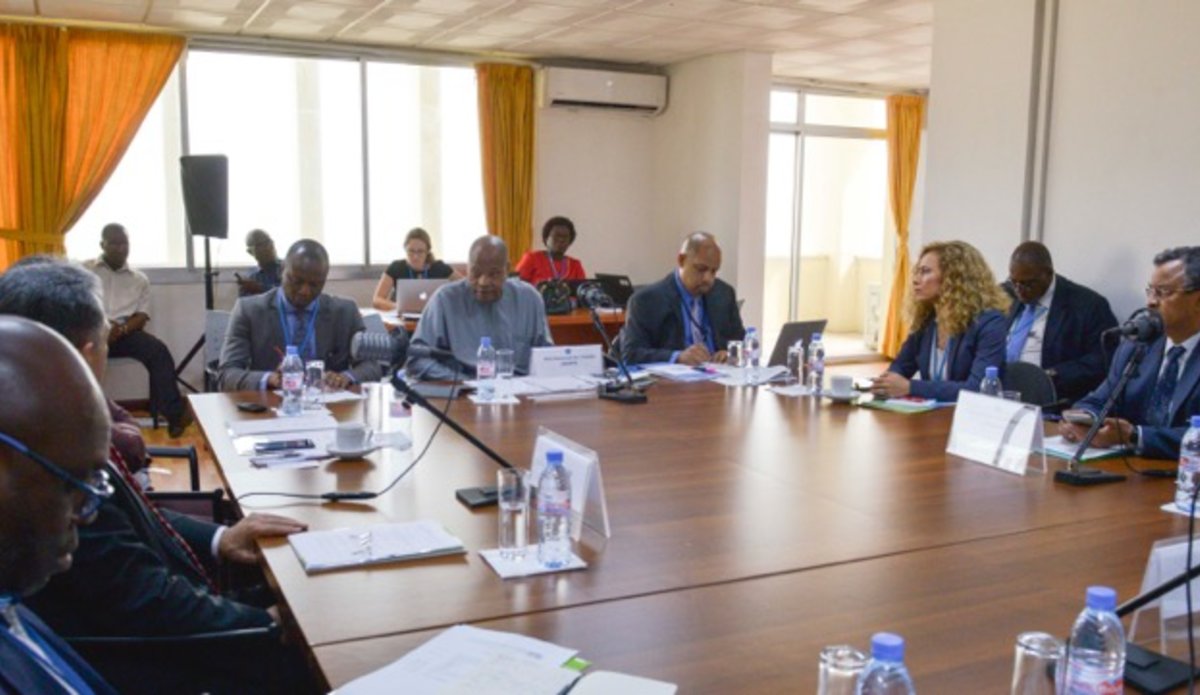The United Nations Office for West Africa and the Sahel (UNOWAS) has restated its commitments in the fight to end statelessness in Africa.
NAN reports that stateless people, sometimes referred to as legal ghosts, are not accepted as citizens by any country, which means they are denied basic rights, leaving many unable to work or access healthcare, and are vulnerable to exploitation and traffickers.
Mohammed Chambas, Special Representative of the Secretary General to UNOWAS, gave the assurance on Tuesday, in Banjul during the Ministerial-level meeting for the adoption of the Regional Plan of Action to end Statelessness.
He said that UNOWAS would achieve this by strengthening interagency coordination and collaborations with the UN High Commission for Refugees (UNHCR) and the Economic Community of West African States (ECOWAS).
Chambas said that the implementation of the Regional Plan of Action will enhance regional collaboration and integration by addressing a host of cross-cutting challenges as it affects statelessness.
He said that the Office would drive the fight and campaign to prevent and liberate stateless persons in the West African Region by making available its relevant expertise for the realization of the global eradication target.
He said the avenues for engagement will include the integration of the Sustainable Development Goals (SDGs) in the fight against statelessness in conformity with the mechanisms for implementations and monitoring of the plan of action.
“When successfully implemented, the Action Plan should prevent the statelessness and redeem millions of West Africans from being vulnerable to marginalized living.
“They would be protected against exploitation by criminal groups, risk of human trafficking, and political and religious radicalization.
“It will enhance stability of states in the region, consolidate and put under one umbrella for the eradication, prevention and reducing the risk of statelessness among the displaced population,’’ Chambas said.
Chambas recommended that emphasis should be placed on preventive measures by prioritising advocacy and sensitization campaign so to avert rising cases of statelessness.
The UNOWAS Rep commended the efforts of UNHCR, ECOWAS Commission and the progress made by Member States in their respective countries to eradicate statelessness in the region.
President Adama Barrow pledged the Gambia’s commitment to eradicating statelessness as it has already developed a national plan of action.
The president who was represented by Mrs Fatoumata Tambajang said that with great commitments, the Gambia would end statelessness in its country before the 2024 global target.
Barrow urged Member States to emulate the Gambia’s commitment in the fight because ending statelessness in the region requires a holistic and collective efforts to end statelessness in the region.
Also, Mr Volker Turk, UNHCR’s Assistant High Commissioner for Protection said that statelessness poses a huge challenge to the socio-economic development and security of the region.
He said that it is for this reason that countries in the world included the provision of “legal identity for all, including birth registration’’ among the SDGs.
The Protection Chief said noted that in the growing threats of insecurity in some member states, persons without identities are more vulnerable to radicalization and recruitment by armed groups.
He stressed the need for the reforms of nationality laws, change in discriminative practices and establishment of legal safeguards to guarantee that all children have a right to nationality at birth.
Turk said that this would ensure the full realization of the values and principles that define the ECOWAS community.
The News Agency of Nigeria (NAN) reports that the Ministerial-level meeting on the Validation and Adoption of the Regional Action Plan began on Sunday, in Banjul with a meeting of technical experts from Member States.
The three-day meeting would end with the validation and Adoption of the eight-year plan of action which sets forth a common framework, actions and timelines to end statelessness in the ECOWAS region. (NAN)


